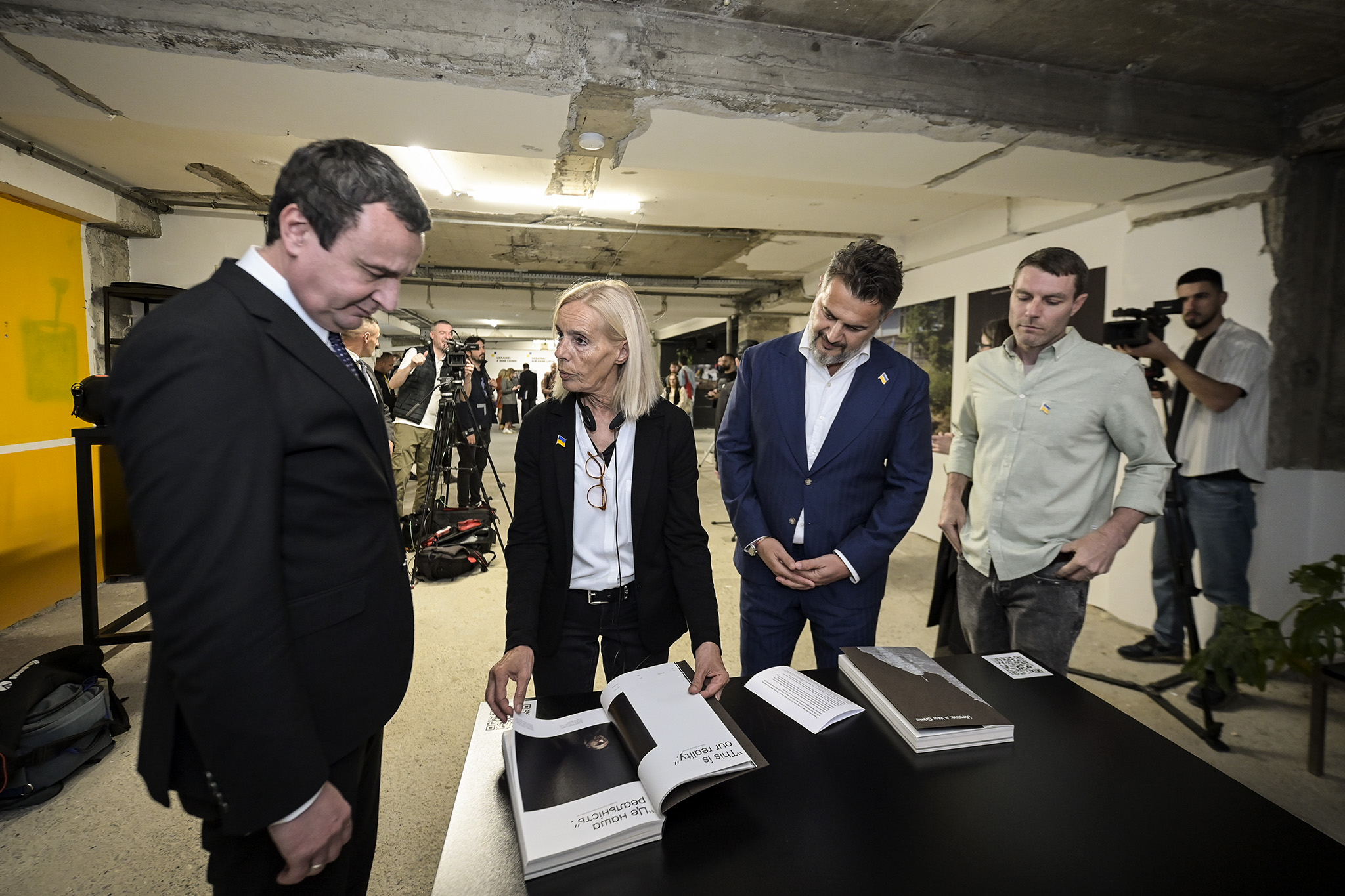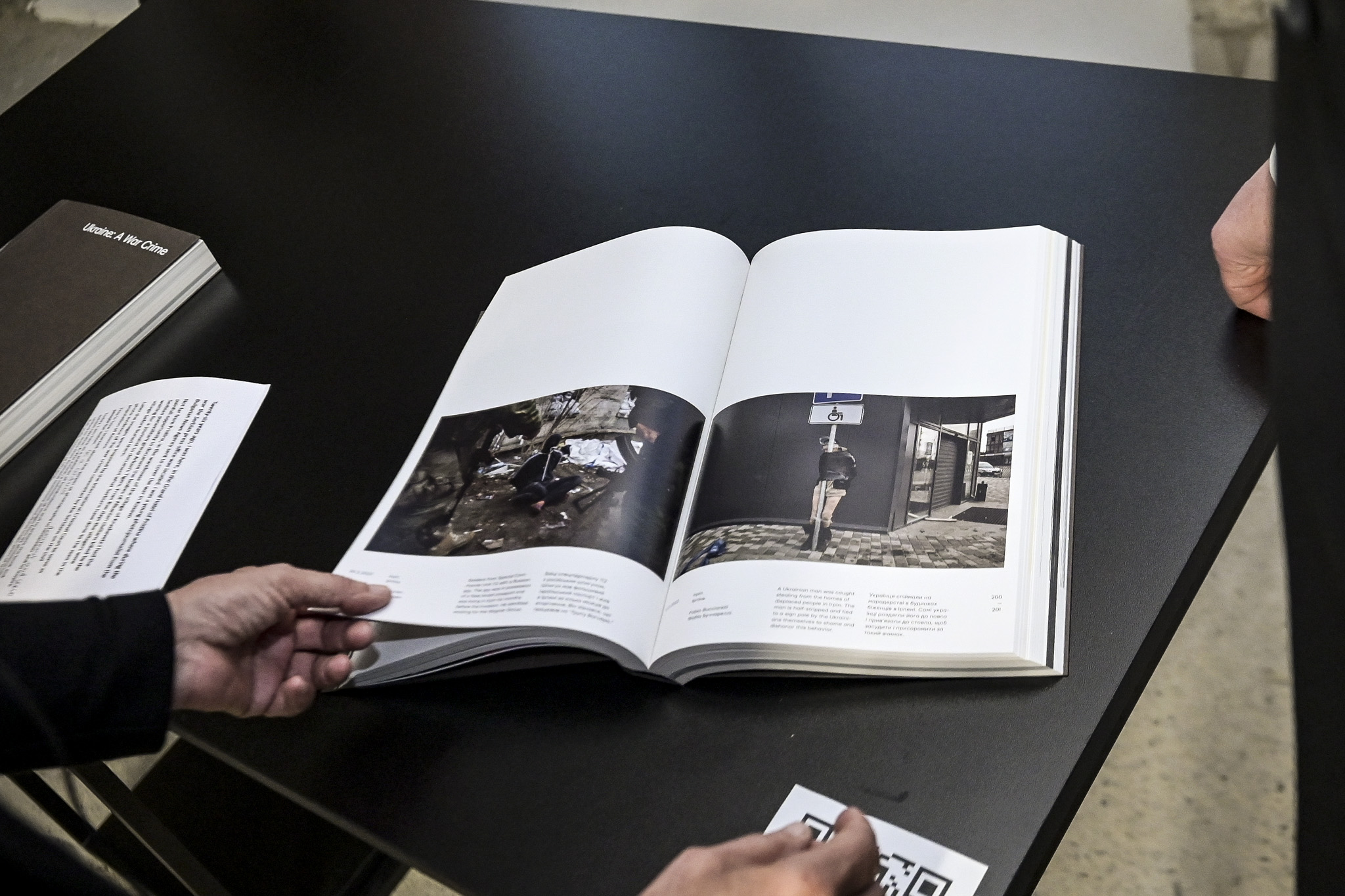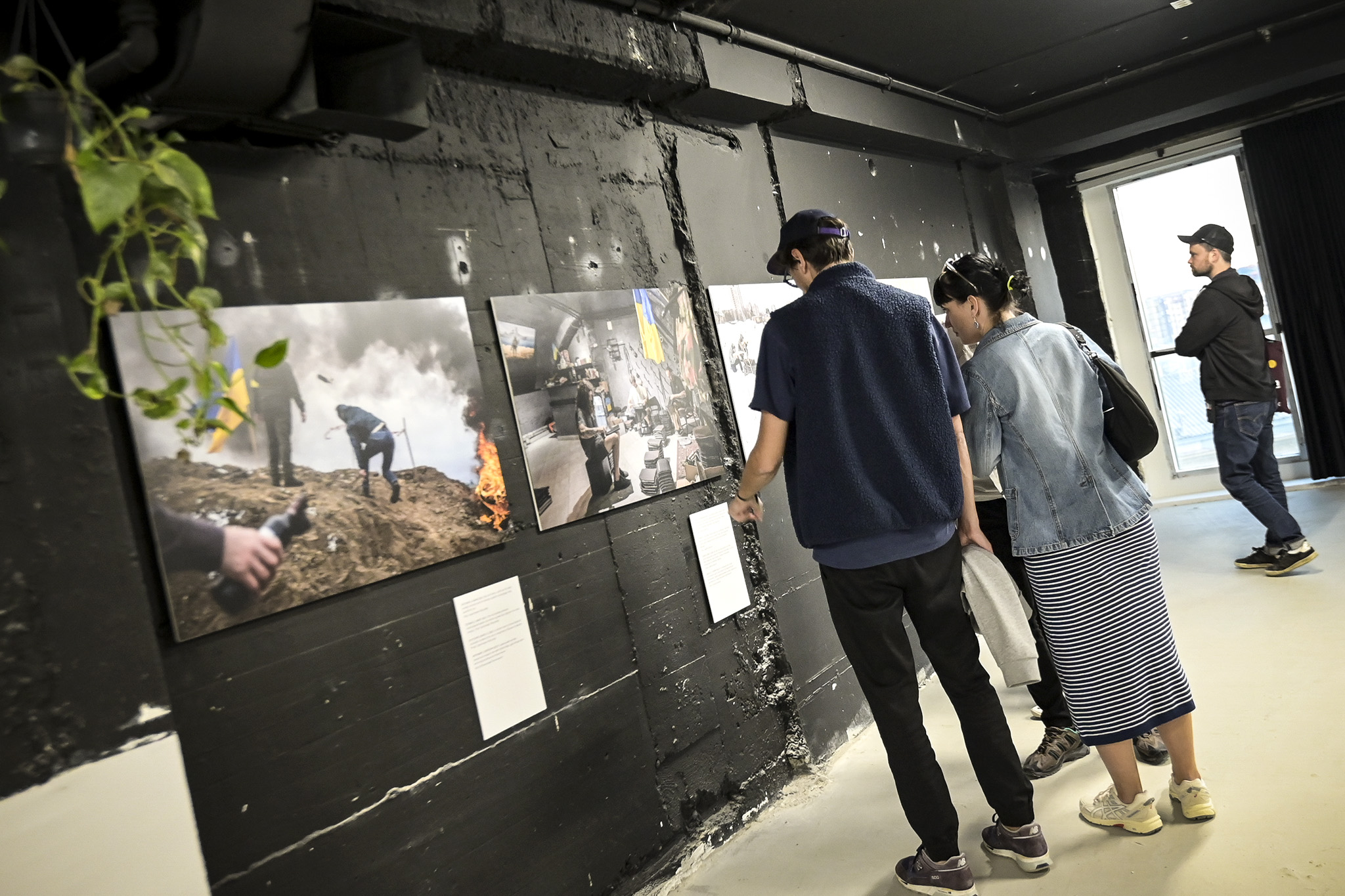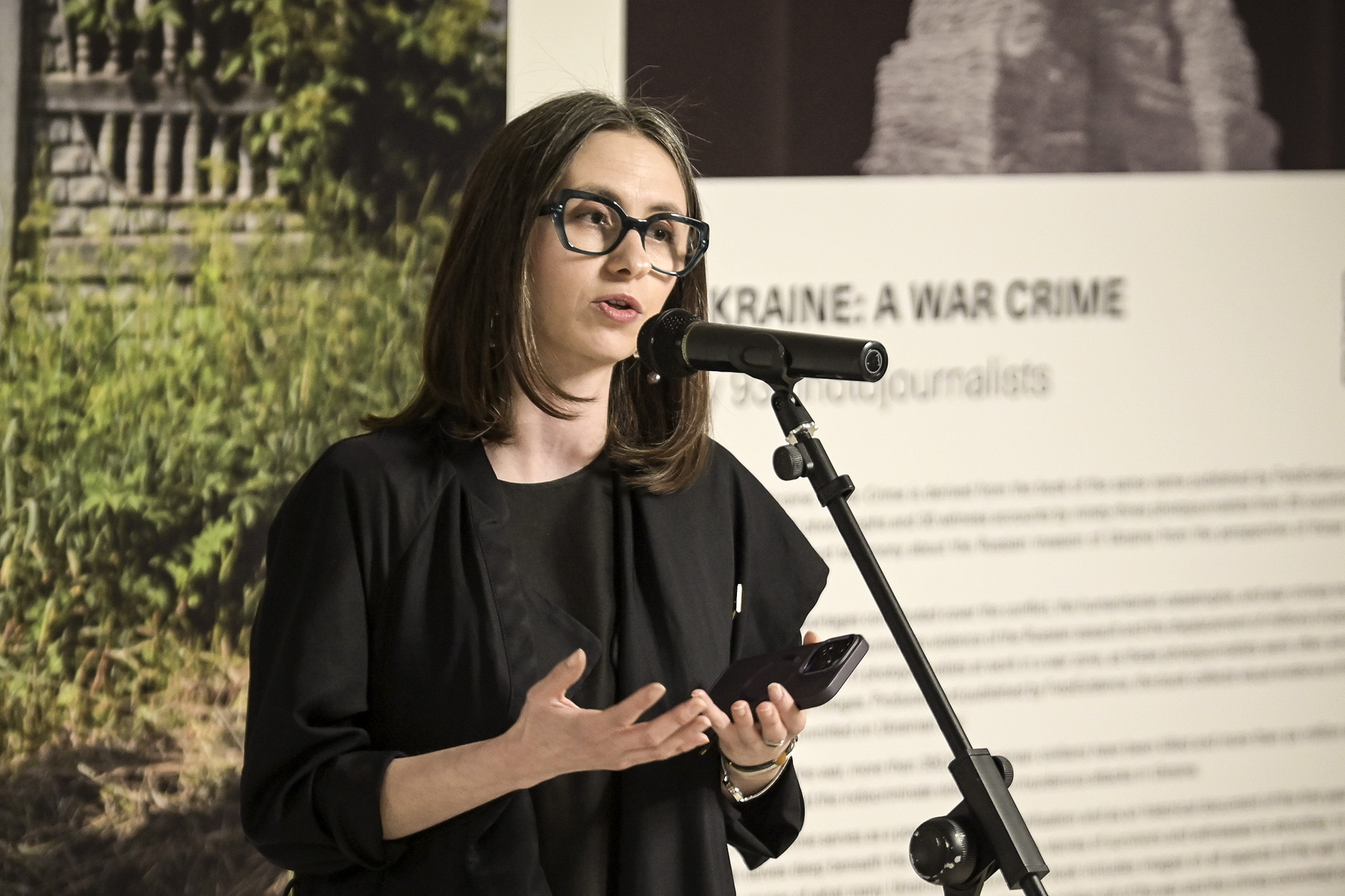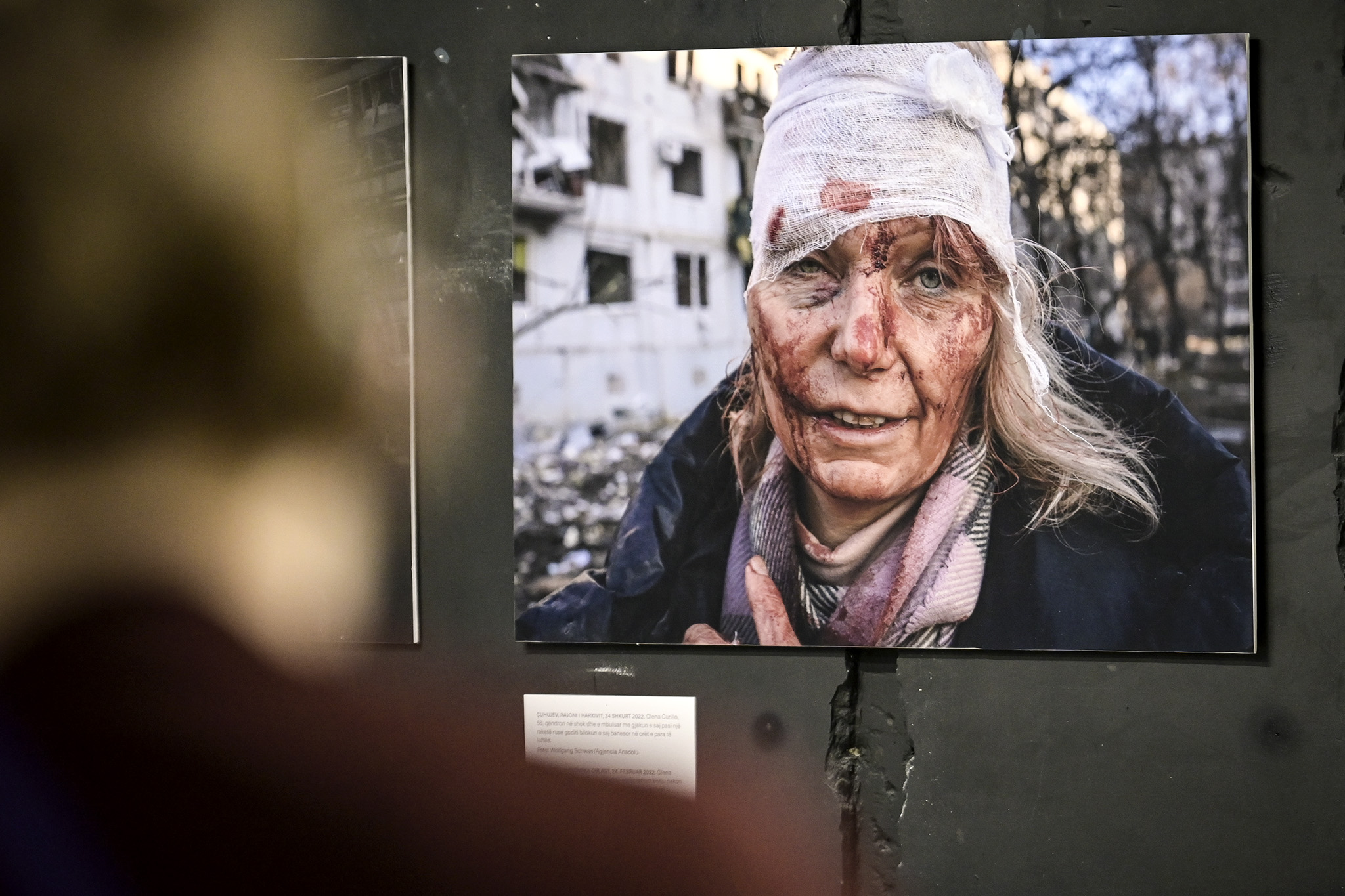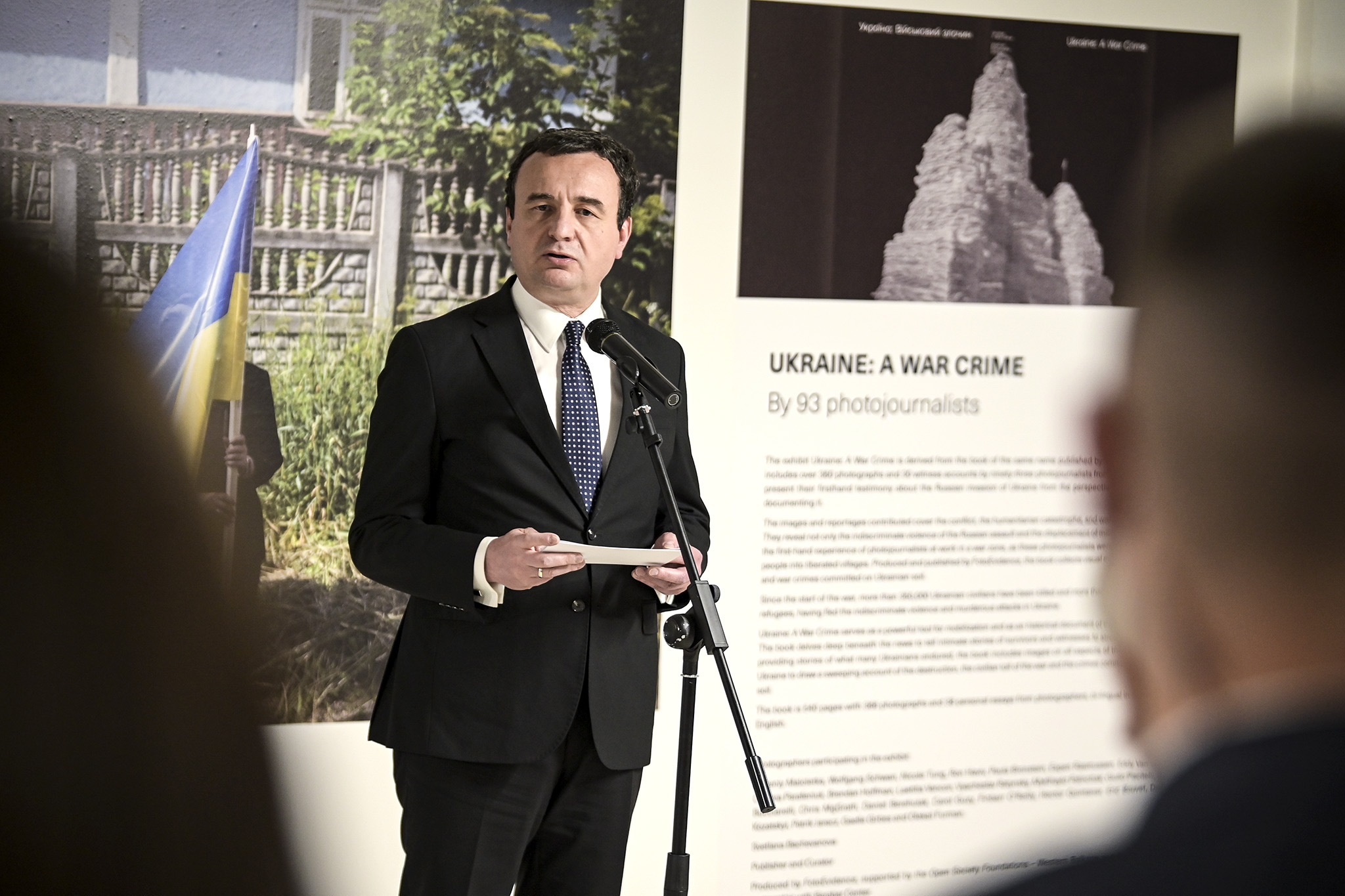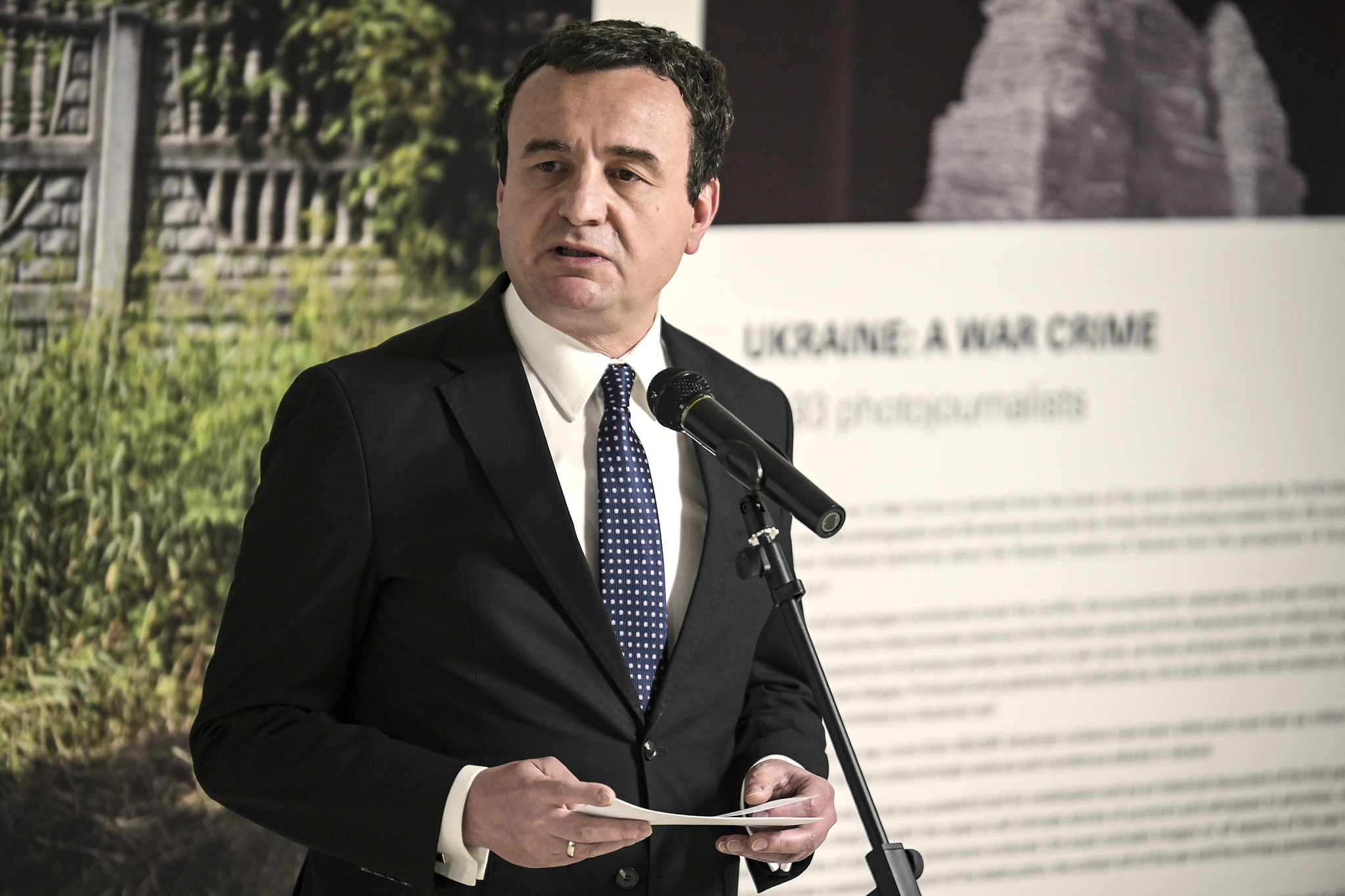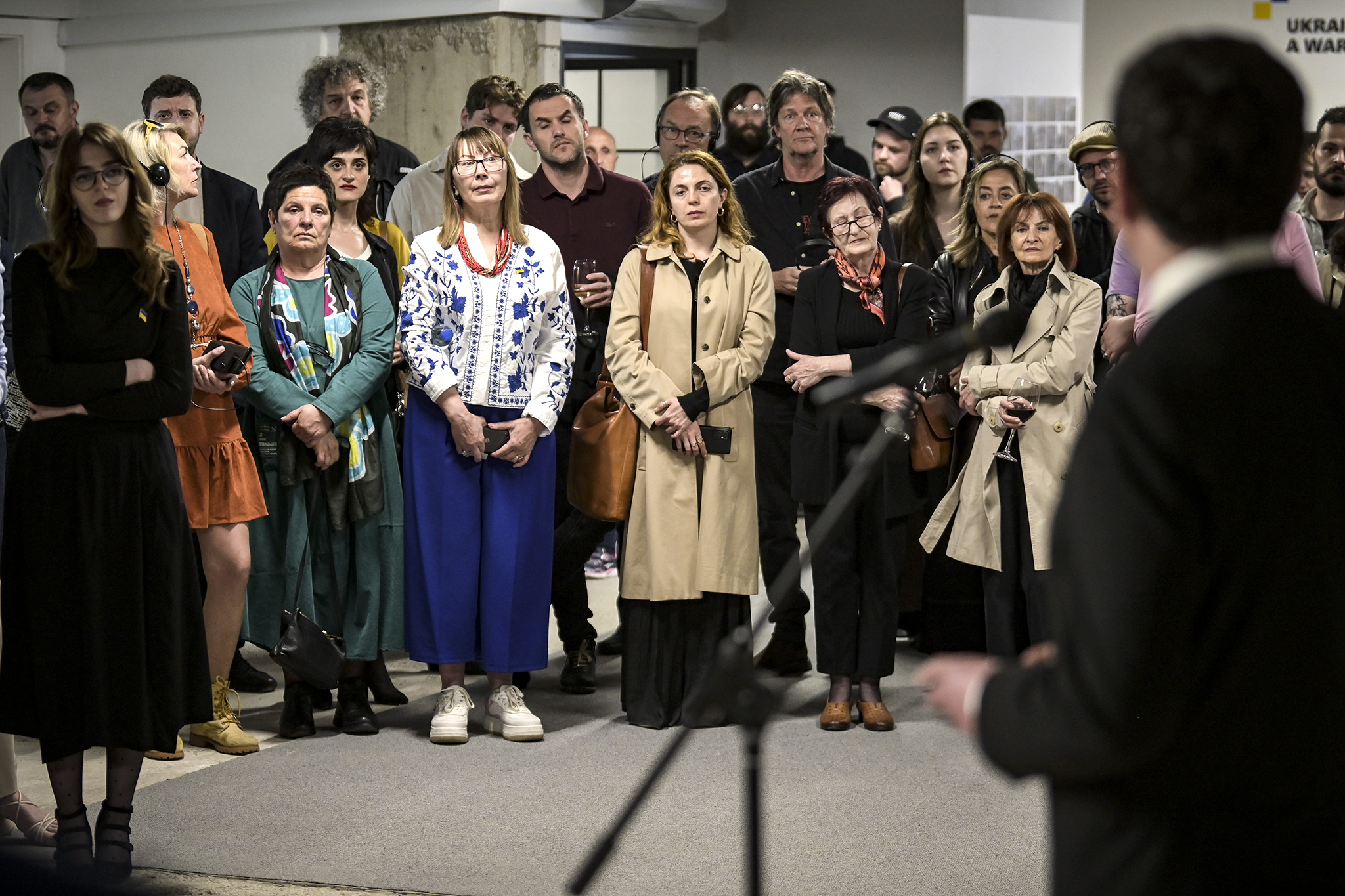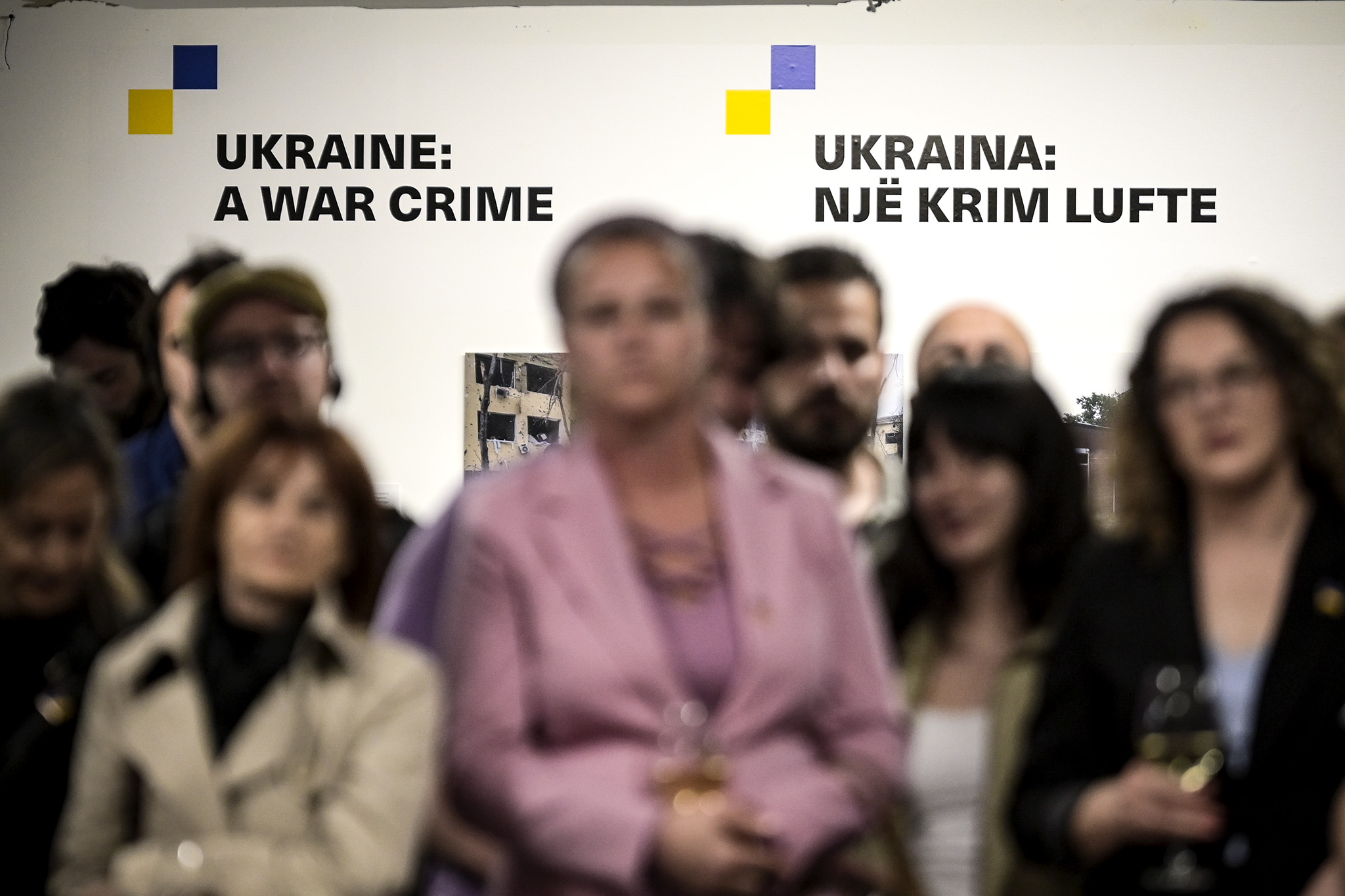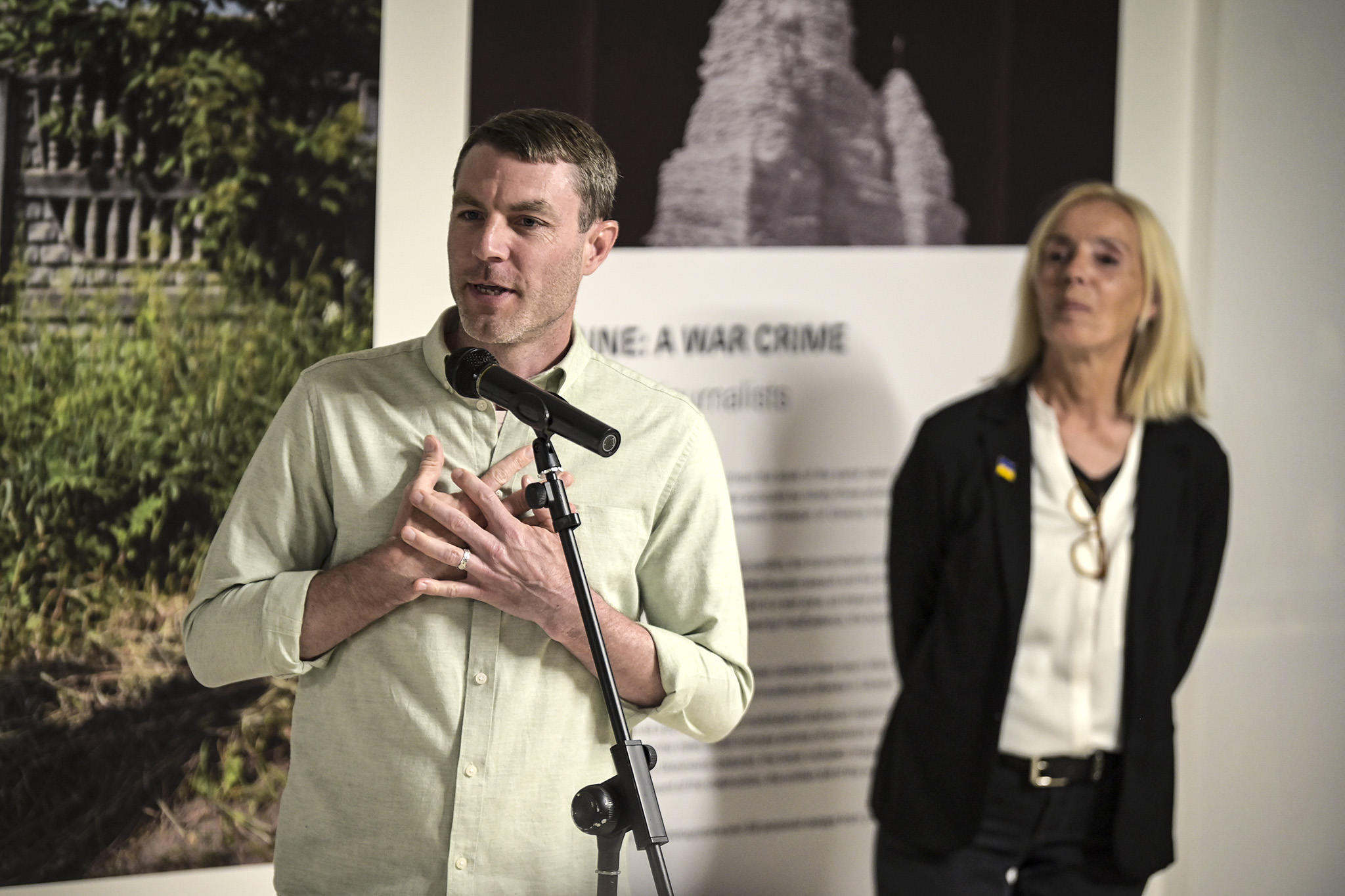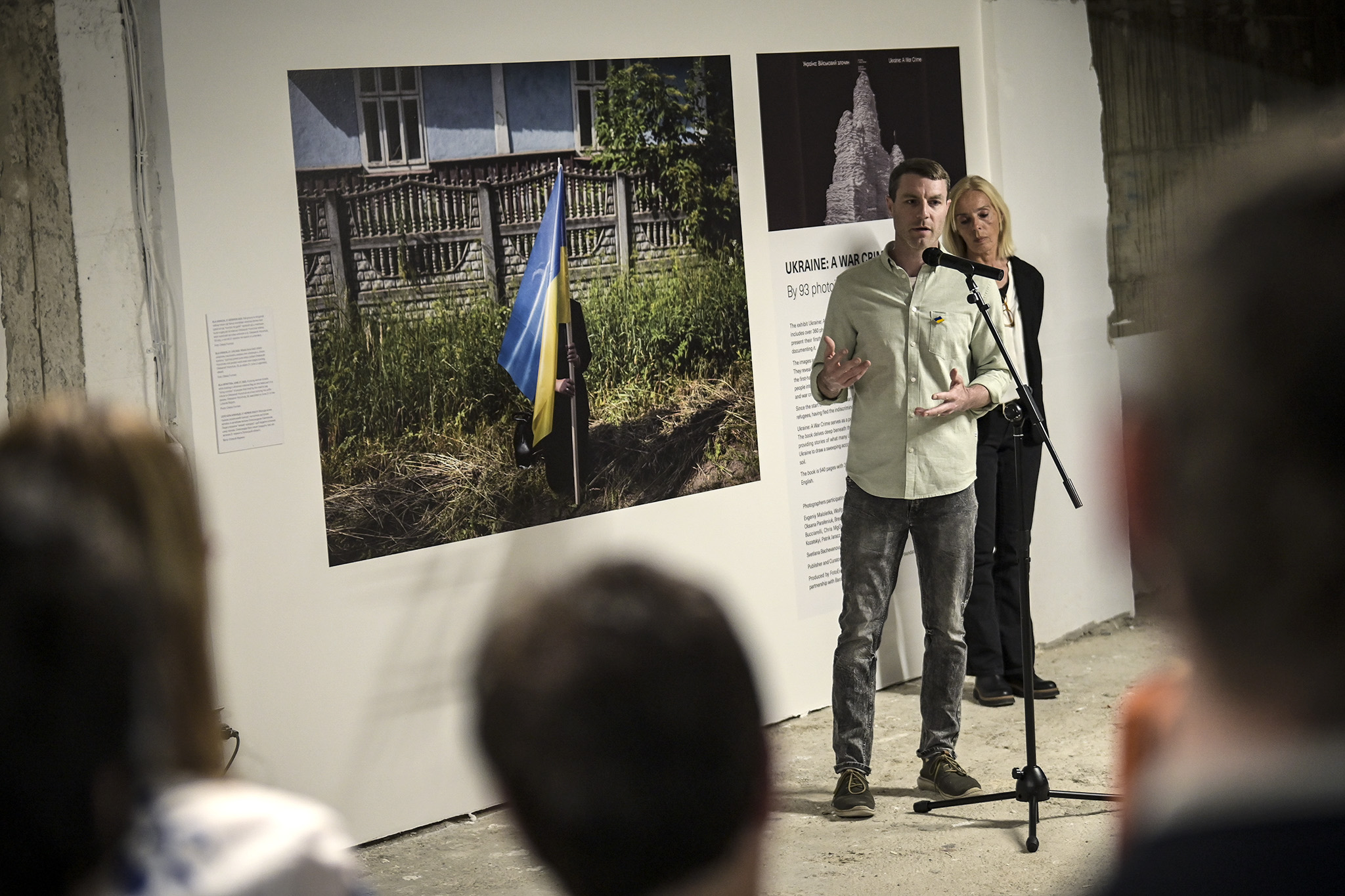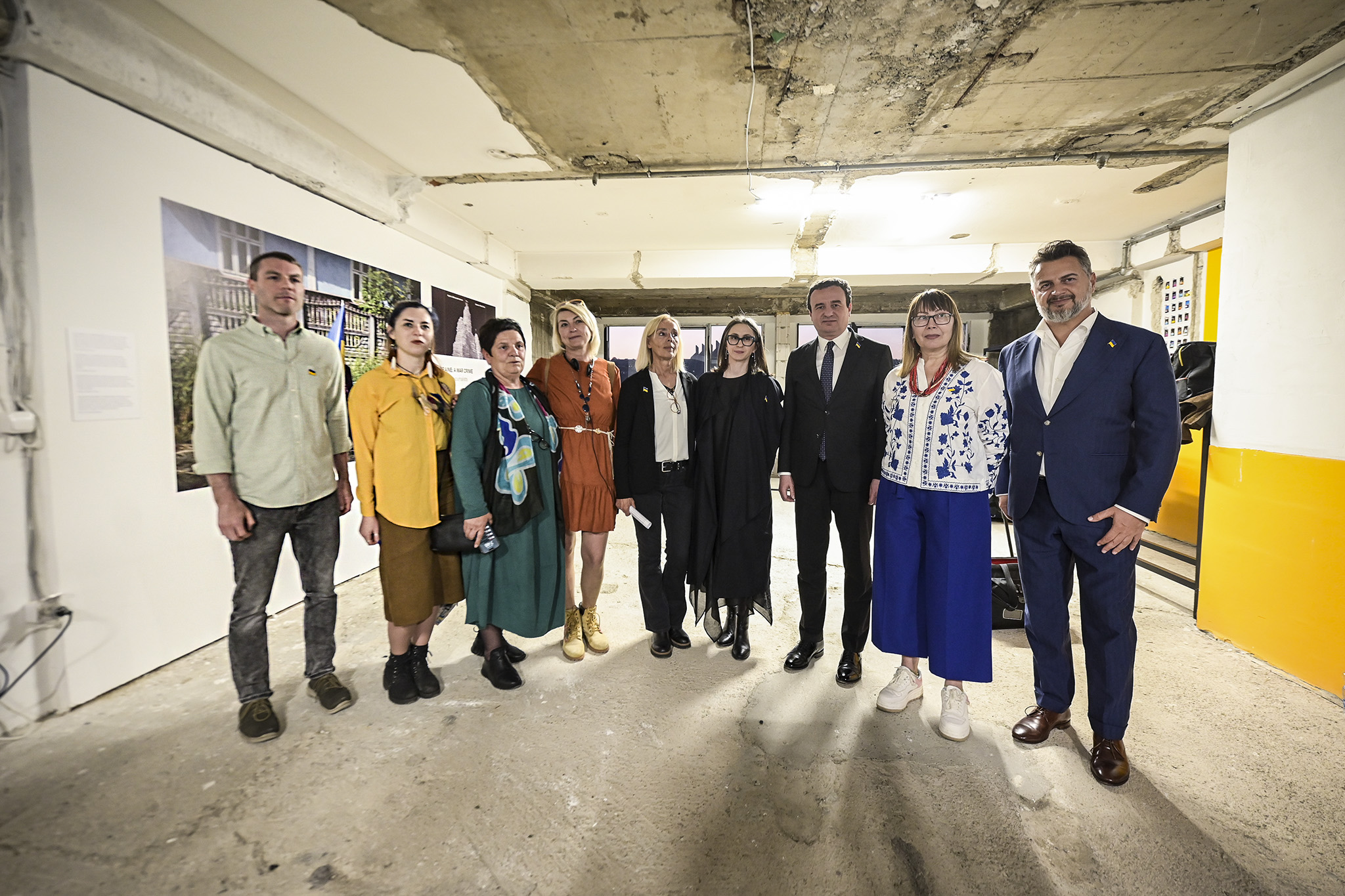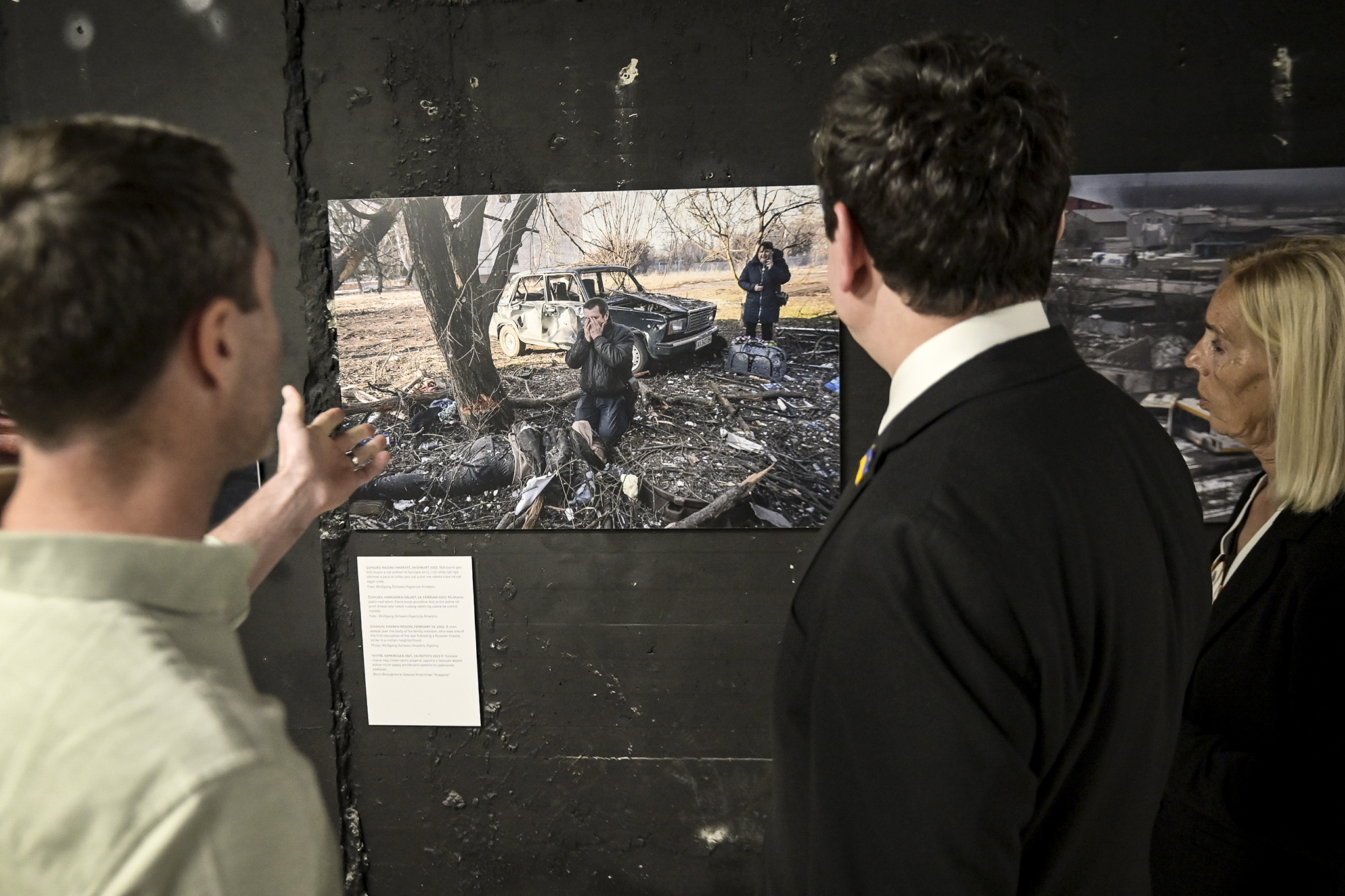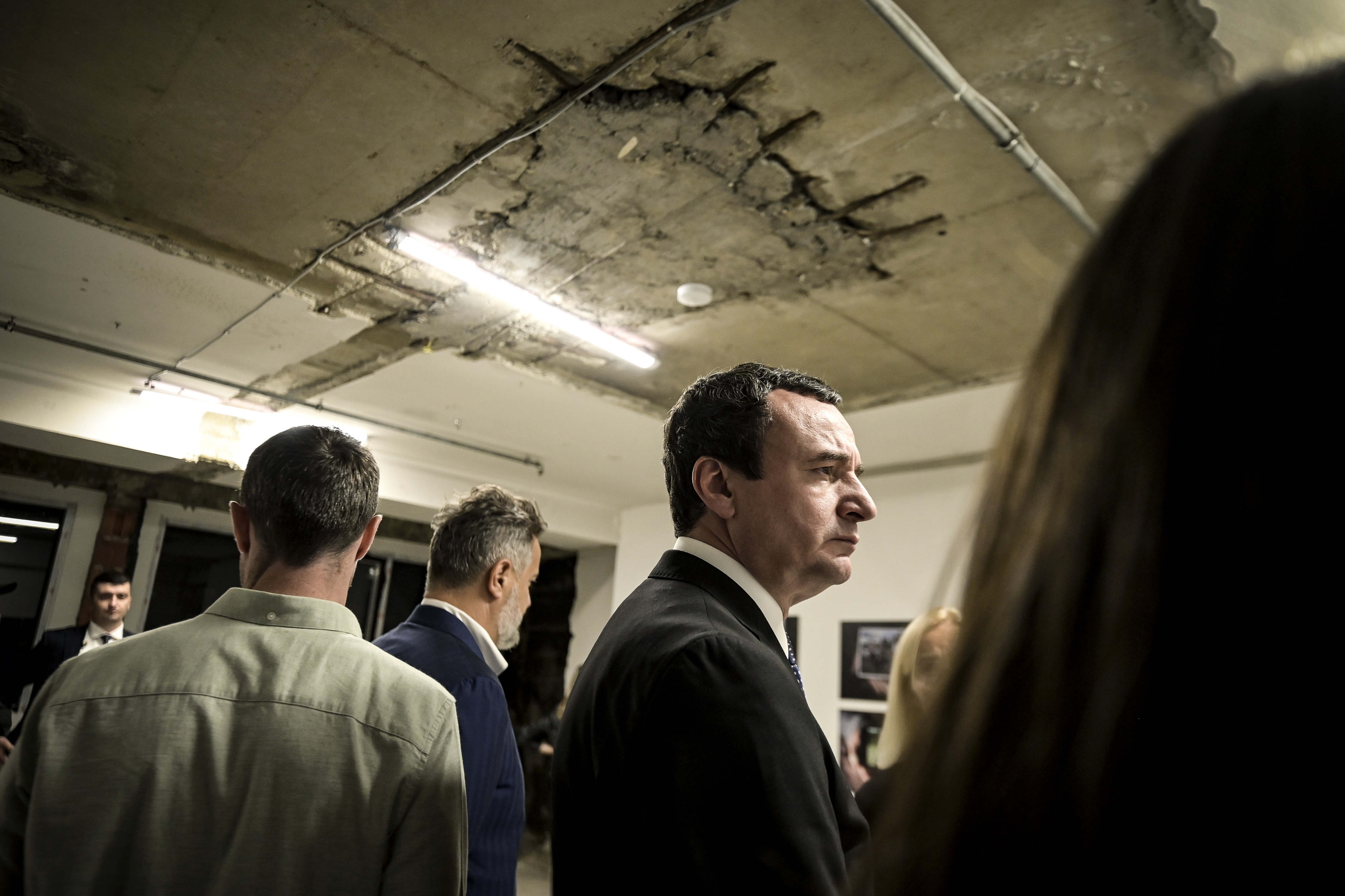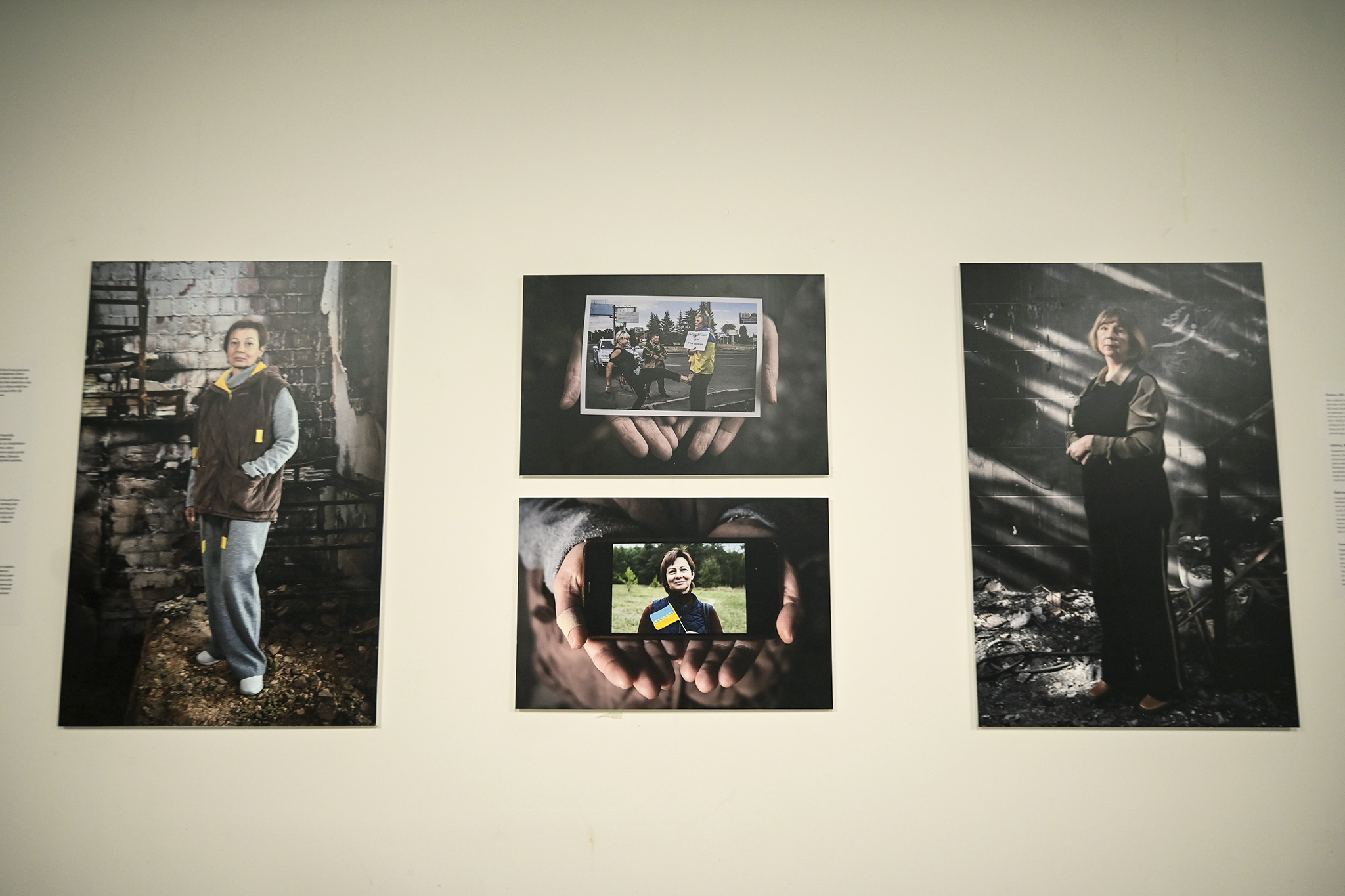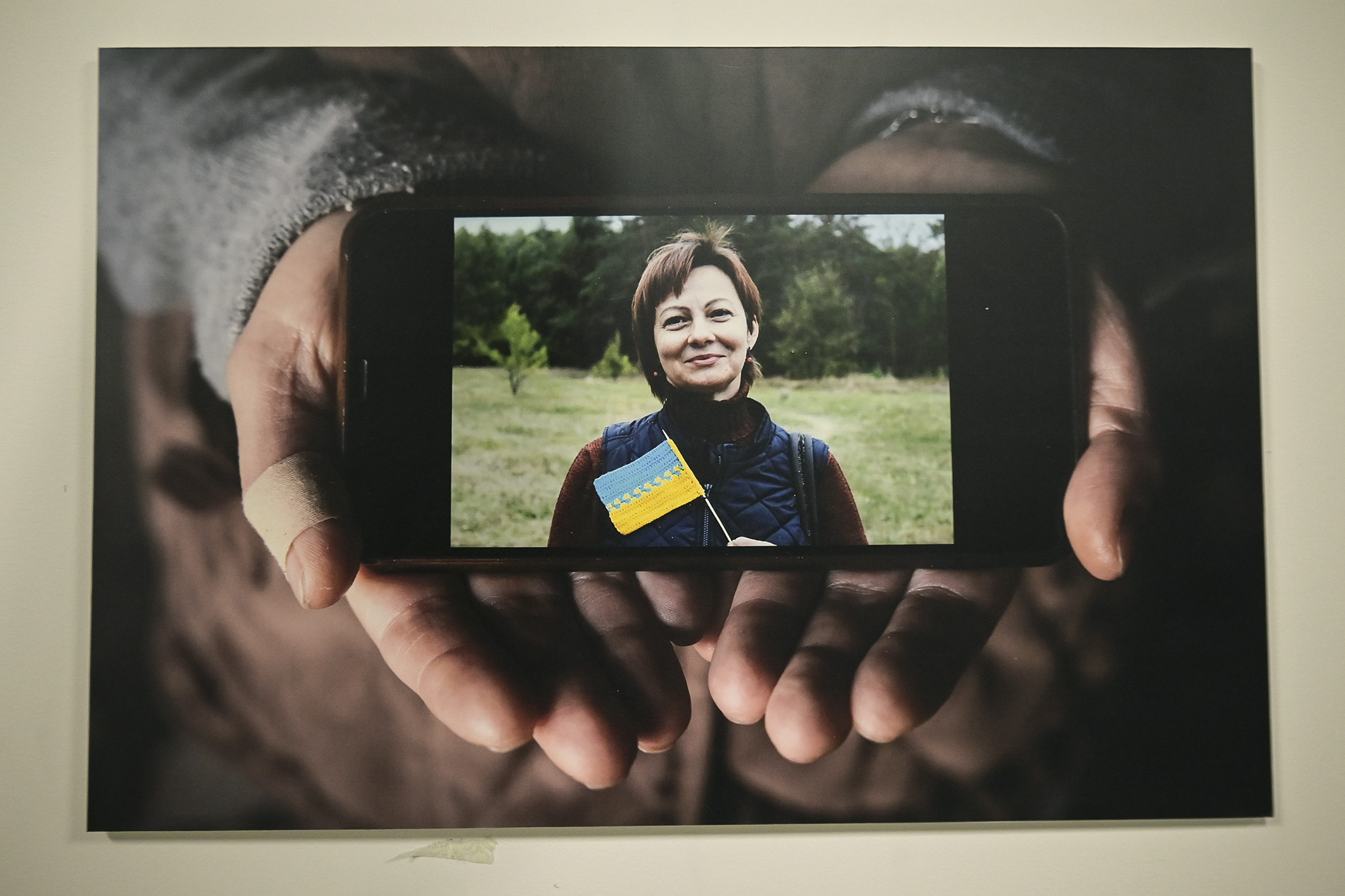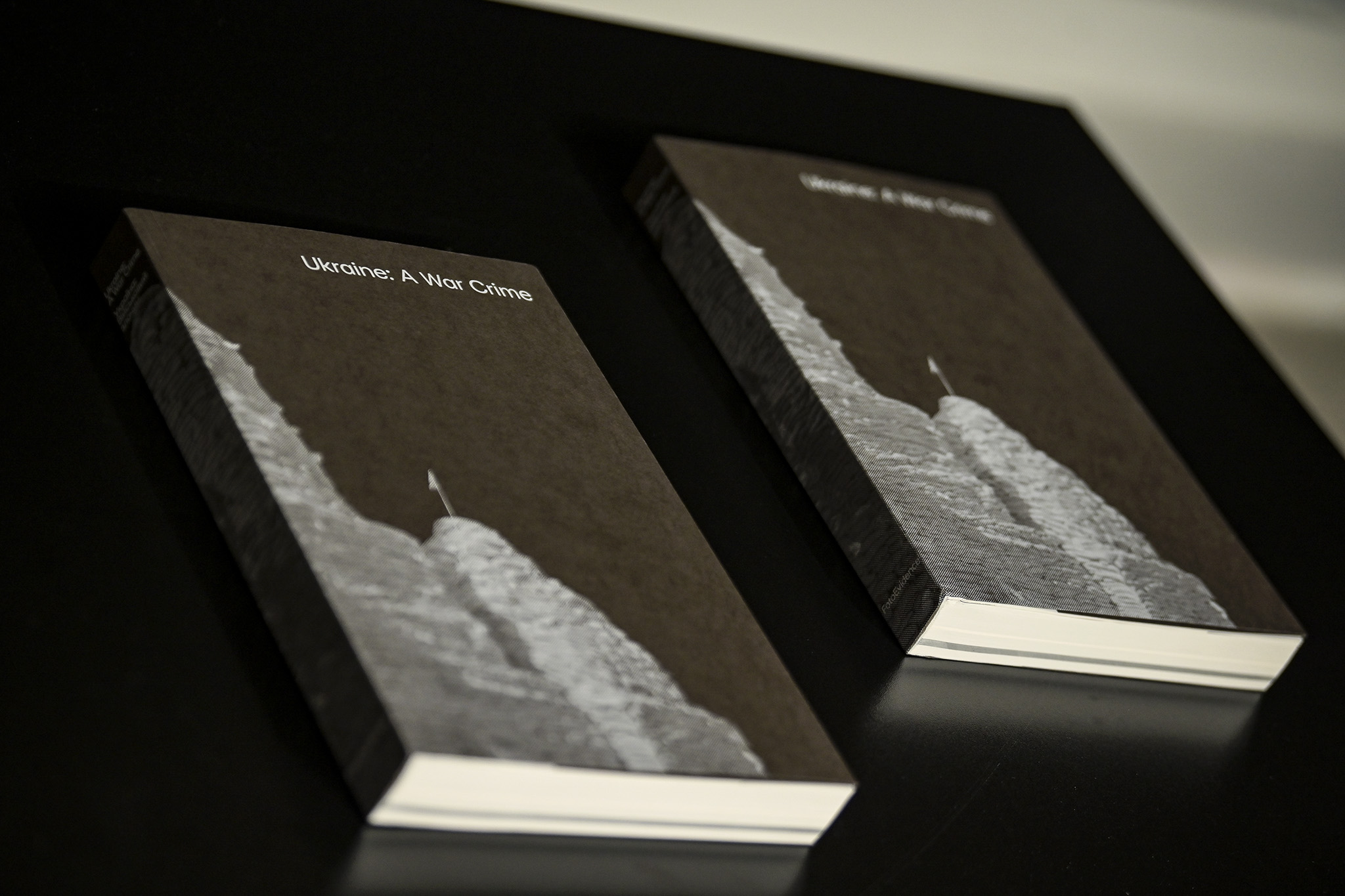Prishtina, 29 April, 2024
The Prime Minister of the Republic of Kosovo, Albin Kurti, in the evening hours, participated in the opening of the exhibition “Ukraine, a war crime”, stressing that its opening is only the latest sign of the solidarity of the people of Kosovo with that of Ukraine, in this difficult time.
Pointing out the solidarity that our people have shown to the Ukrainian people, the Prime Minister said that first of all it is the duty and responsibility of every democratic state, every state that respects and values human rights and the rule of law, to stand in solidarity with Ukraine against the invasion illegal in Russia, and to help it with any means at our disposal. He said that Russia’s attack on Ukraine is also an attack by the autocracy on democracy.
“Secondly, Kosovo stands in solidarity with Ukraine, because the crimes that are being committed in today’s Ukraine were also committed in Kosovo in the 90s. And this is something that sets the people of Kosovo apart from other democratic states. Our memories of that terrible decade are still fresh. The wounds are still open”, said Prime Minister Kurti, adding that almost every citizen of Kosovo is either a victim of the mass deportation of Albanians in 1999, or has at least one family member who was a victim of the deportation or massacres by Serbian forces.
Remembering the crimes committed and the absence of 1,597 forcibly disappeared persons, whose families, 25 years later, are waiting to find out the fate of their loved ones, the prime minister said that Kosovo as a democratic state, but also as a people who have a similar experience to that of Ukraine has a double reason to stand in solidarity with the Ukrainian people.
This solidarity, as Prime Minister Kurti said, during the last two years we have expressed not only in words, but also in deeds, mentioning that since the beginning of the war, the Government has approved 11 packages of sanctions from the EU, against Russia, Belarus and representatives theirs.
In his speech, Prime Minister Kurti said that today’s exhibition is of special importance, because the truth is shown and spread, not only with words, but also with art, especially with visual arts, such as painting and photography.
He did not leave without mentioning the brave photographers who stayed in Kosovo during the war of 1998-1999, who documented what the Kosovo Albanians were experiencing from the military, police and paramilitary forces of Serbia.
“There are hundreds of photographs that show, perhaps even better than words, the truth of that time. Among others, for example, there is a picture of two small children crying after their parents are killed, another picture of hundreds of refugees being deported from our country, and another which shows a long line of civilians, as if endless, carrying dozens of coffins with the victims of the Reçak massacre on his shoulders”, he said.
Emphasizing that this exhibition directs us towards the future, instructs us not to stop, until all the perpetrators of these terrible crimes are brought to justice, the Prime Minister said that the fight for justice is another common point between Kosovo and Ukraine.
“I wish that the battle for justice for the people of Ukraine is not delayed for decades, as it has been delayed in Kosovo. This exhibition, which opens today for the first time in our country, is a significant contribution in this direction”, he said.
Prime Minister Kurti’s complete speech:
Dear Ms. Lura Limani, Director of Kosovo for Open Society Foundations – Western Balkans,
The honorable Mr. Andi Dobrushi, Regional Director of Open Society Foundations – Western Balkans,
Dear Ms. Svetlana Bachevanova, curator and publisher of the book,
The honorable Mr. Brendan Hoffman, photojournalist based in Ukraine,
Dear attendees,
Ladies and gentleman,
It is an honor and a pleasure to speak before you, on the occasion of the opening of the exhibition entitled “Ukraine, a war crime”.
The opening of this exhibition in Pristina is just the latest sign of the solidarity of the people of Kosovo with that of Ukraine, in this difficult time. Our solidarity with the Ukrainian people, I believe, has two sources. First, it is the duty and responsibility of every democratic state — that is, every state that respects and values human rights and the rule of law — to stand in solidarity with Ukraine against Russia’s illegal occupation, and to help it by any means at our available disposal. Because Russia’s attack on Ukraine is also an attack by the autocracy on democracy, it is an attack by the empire with pre-modern nostalgia against the republic with a modern European orientation. The war in Ukraine, therefore, is not just a simple matter between two states. It has implications for the whole world. Ukraine’s resistance is a symbol of the stability of democracy, against the forces that seek its destruction and disappearance.
Consequently, a strong and committed democracy, such as that of our country, the Republic of Kosovo, cannot ignore what is happening today in Ukraine.
Secondly, Kosovo stands in solidarity with Ukraine because the crimes that are being committed in today’s Ukraine were also committed in Kosovo in the 90s. And this is something that sets the people of Kosovo apart from other democratic states. Our memories of that terrible decade are still fresh. The wounds are still open. Almost every citizen of Kosovo is either himself a victim of the mass deportation of Albanians in 1999, or has at least one family member who was a victim of deportation, torture or massacres committed by the Serbian forces of the Milosevic regime.
Also, since the last war in Kosovo, there are still 1,597 people forcibly disappeared, whose families, 25 years later, are waiting to find out the fate of their loved ones. Kosovo, therefore, as a democratic state, but also as a nation that has an experience similar to that of Ukraine, has a double reason to stand in solidarity with the Ukrainian people.
During the last two years, we have expressed this solidarity not only with words, but also with deeds. Since the beginning of the war, our Government has approved 11 packages of sanctions from the EU, against Russia, Belarus and their representatives. Last year, on the occasion of Ukraine’s Independence Day, we joined the Declaration of the G7 Countries in Support of Ukraine. And in the military direction, we have trained 100 Ukrainians in various fields, such as demining, search and rescue and anti-chemical, atomic and biological defense. We also provided two packages of military aid to the Ukrainian forces, including 30 vehicles and 10,000 mortar shells. Our help has not been missing for civilians either. We have been willing to offer shelter to 5,000 refugees from the conflict and have welcomed 18 journalists to our country as part of the Journalists in Residence program, giving them a safe place to do their work, to get the word out of the world the truth about the brutality of the military aggression, the unprovoked invasion, the illegal occupation of Russia.
In this regard, the exhibition that is opening tonight in Pristina is of particular importance. Because the truth is shown and spread, not only with words, but also with art, especially with the visual arts, such as painting and photography. Today’s exhibition takes place in a long and distinguished tradition of artists who have also told the truth about the horrors of war against civilian populations in various countries around the world. Who can forget, for example, Pablo Picasso’s most famous work, Guernica of 1937, a painting which depicts, in cubist style, the horror of the bombing of the village of that name by Nazi and fascist forces? In the same tradition, 35 years later, the American photographer, Nick Ut, with the image of the so-called “Napalm Girl”, has witnessed the traumatic suffering that the War in Vietnam has caused to the civilian population of that country. This photograph is recognized, even today, more than 50 years later, as one of the most iconic images of the 20th century.
I cannot leave out the brave photographers who stayed in Kosovo during the 1998-99 war, who documented what the Kosovo Albanians were experiencing from the military, police and paramilitary forces of Serbia. There are hundreds of pictures that show, perhaps even better than words, the truth of that time. Among others, for example, there is a picture of two small children crying after the murder of their parents, another picture of hundreds of refugees being deported from our country, and another showing a long, seemingly endless line of civilians, carrying dozens of coffins with the victims of the Reçak massacre on his shoulders.
Today’s exhibition is a continuation of this tradition, but it is also special for another reason. The best works of photographic art not only tell the truth about the past, but also encourage action in the future, serving as a bridge between what has happened on the one hand, and what can, and should be done on the other side. The very title of this exhibition, “a war crime”, speaks of both the past and the future. Because war crime is not only a moral but also a legal category. War crimes, like all crimes, have perpetrators and perpetrators. This exhibition, therefore, directs us towards the future, instructs us not to stop, until all those responsible and perpetrators of these terrible crimes are brought to justice.
The battle for justice is another common point between Kosovo and Ukraine. There are many, many massacres committed in Kosovo, for which no official of Serbia has been tried, convicted, or even accused, including the Dubrava Prison massacre, for which many things appear to have been carried out on direct orders from the highest levels of the Government of Serbia, whose 25th anniversary will be celebrated in three weeks. For 25 years, the perpetrators and order givers of this monstrous crime have not been brought before any court. I wish that the fight for justice for the people of Ukraine will not be delayed for decades, as it has been delayed in Kosovo.
This exhibition, which opens today for the first time in our country, is a significant contribution in this direction.
Thank you!

